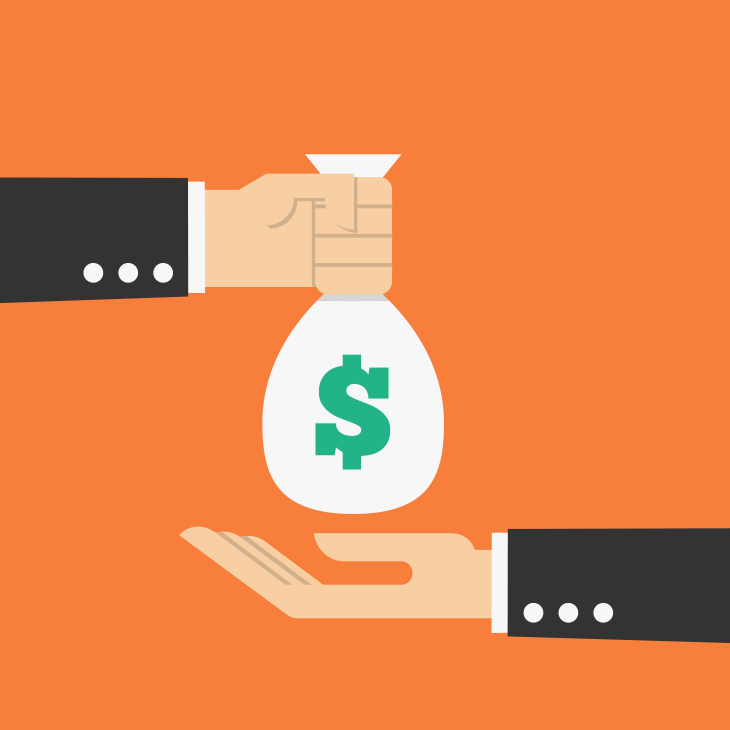Both assets and expenses have a “debit” balance on your business’s financial statements, but that’s where their similarities end. Spending time on one of these can make you rich, and spending too much on the other can leave you broke. It’s worth it to learn the difference!

Assets vs. Expenses: Learning the Difference Can Make You Rich
Asset-Rich
An asset is a tangible resource that belongs to you or your business and is still worth something after a year or more. The best assets grow in value over time, but some lose their value too. Real estate typically goes up in value, whereas a car loses value, or depreciates heavily, in its first few years. However, both are still assets, because they retain value after a year.
Expenses
An expense is money you may need to spend, but after a year, there is nothing lasting to show for it because the item gets consumed or is used up. Expenses include things like rent, food, utilities, clothes, office supplies and health insurance.
How to Build Wealth Fast
To build wealth fast, spend your money on assets that maintain or grow their value. Go frugal on expenses and on assets that lose their value quickly.
Many times it’s hard to tell the difference between an asset and an expense. The best example of an asset versus an expense is a mortgage versus rent. The amount of cash you spend on your mortgage or your rent can be the same. But the impact on your net worth—the total amount of what you own minus what you owe—can be significant.
With a mortgage, your ownership value in the property grows each month with each payment you make. That’s because a portion of your payment is principal, and that reduces your loan, which increases your ownership. The rest of the payment is interest, which is an expense. With a mortgage, you can sell your ownership in the property and get cash or another asset in a trade in the future. When you pay rent, however, there’s nothing left at the end of the month; there’s no accumulating value.
8 Wealth-Building Tips
The path to building your wealth is to spend on assets when you have a choice and minimize expenses when you can. Here are eight wealth-building tips every small business owner can implement right now:
1. Buy items that will last a long time, if possible. Land, buildings, business equipment, high-quality furniture and even a good website are things that should last for more than one year.
2. When you have a choice between a mortgage and rent, go for the mortgage . I was renting an office in an executive suite for a few months and watching my money drain away with each rent payment. I fixed it by buying a condo and moving the employees into the condo. Now, I have a personal asset I can sell at some point in the future; plus, I can charge my business rent in the meantime. And I don’t miss the Friday bagels at the office center one bit!
3. When you have a choice between leasing and buying, buying is usually best.
4. Get frugal with recurring expenses when possible . Shop for the better phone deal, watch out for high travel and entertainment costs, and track office supply usage. This way, you’re increasing your profits and can pay yourself more or reinvest back in the business. But don’t spend a ton of time on this; entrepreneurs who spend more time on increasing revenue are more successful than those who focus too much on cutting costs.
5. If possible, slow down your replacement of large assets that depreciate quickly. For example, the first large asset many small business owners buy is often a car, which is expensive and has a high rate of depreciation. In the book The Millionaire Next Door, one of the top examples to build personal wealth is to avoid replacing your car for as long as possible.
I learned this one the hard way. When I was in my 20s, I was buying BMWs every two years with very expensive maintenance costs. I “saw the light” in my early 30s and decided to curb my purchasing of the “latest and greatest” luxury cars. When I crunched the numbers, I realized that one habit has helped me accumulate tens of thousands of dollars more than I otherwise would have. Today, my little hybrid is six years old, and I have just recently started to think about its replacement.
6. Slow down on your routine personal expenses , especially if your business is in its startup years. Spreading out haircuts and doing your own nails will permit you to borrow less or pay yourself less so that you can spend more on building business revenue.
7. Refinance any credit card debt you have, and try to get a lower interest rate . When prospective entrepreneurs are unable to secure a business loan, they sometimes turn to credit cards. Interest, no matter how small, adds up over time. It is an expense that should be minimized or avoided when possible.
8. Use credit cards only to finance assets, or pay them off each month . If you do need to use credit cards for a business expense, utilize it for purchasing business assets; then you at least maintain the value of that asset. If you use credit cards for recurring business or living expenses and aren’t paying them off each month, you are digging a deeper hole and lowering your net worth, making it harder for you to build wealth over time.
Investing in assets and reducing expenses will build your business’ net worth, make you more viable for a loan and increase your profits over time. Look for ways you can apply this to your business, and you’ll watch your money grow.







